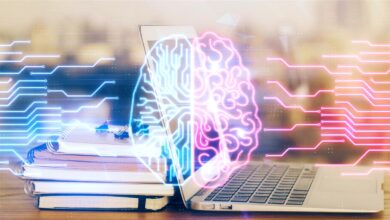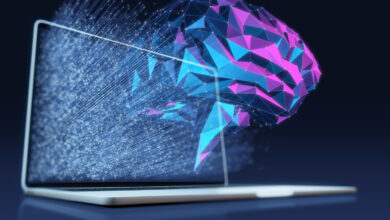How Generative AI is Changing the Game for Software Developers

For anyone involved in software development, the rise of generative AI tools raises an uncomfortable question: “Will robots take my job?” As AI changes the coding landscape, it’s inevitable that tech professionals will have to consider how they can evolve with it.
These generative AI tools are becoming much better at everything from writing basic code snippets to identifying bugs. At first glance, that might seem like a career-ender for junior developers—but even the most coding-intensive job requires other skills, many of which aren’t replicable by a machine.
First, it’s important to note what AI does well in terms of coding:
- Easing repetitive coding tasks by generating boilerplate code.
- Reviewing code for obvious bugs.
- Code optimization and efficiencies.
This is all front-line stuff; as any tech pro will tell you, generative AI can’t build an entire, complex app from scratch, or figure out how a project fits into a company’s overall portfolio. Developers and engineers who use generative AI to create code still need to tweak that output to fit their specific needs; AI also can’t catch every error and efficiency as well as a human who can see all a project’s particular needs and nuances.
Adapting to the AI Revolution
For any developer or engineer who wants to further “future proof” themselves against AI, consider the following:
- Don’t run away from AI: For better or worse, these tools are here to stay, so you better learn how to leverage them. Take the time to explore AI-powered code completion. If you’re knowledgeable about how AI works, you may even attract attention from employers who want employees who’ve mastered AI code generation.
- Problem-solving is always key: AI excels at automating tasks, but it lacks the human ability to conceptualize and solve complex problems. Hone your analytical skills and become an expert in problem-solving, and you’ll continue to attract love from recruiters and hiring managers.
- Soft Skills never go out of style: Communication and teamwork are becoming even more critical as development teams become more distributed and leverage AI tools. Develop your ability to collaborate effectively, explain technical concepts clearly, and work seamlessly with designers, product managers, and other stakeholders—you’ll boost your career longevity in the process.
- Creativity! Use the time freed up by AI to focus on the big picture. Think strategically about new features, propose solutions to long-standing problems, and become a driving force for innovation within your team.
Remember, you ignore AI at your peril: PwC recently analyzed more than half a billion job ads from 15 countries to determine how AI is impacting the current global workforce, and found that those who choose to specialize in AI can enjoy wage premiums of up to 25 percent on average. “Today, there are seven times as many postings for specialist AI jobs as there were in 2012. In contrast, postings for all jobs have grown more slowly, doubling since 2012,” the report added. This is one genie that’s not going back in the bottle.



